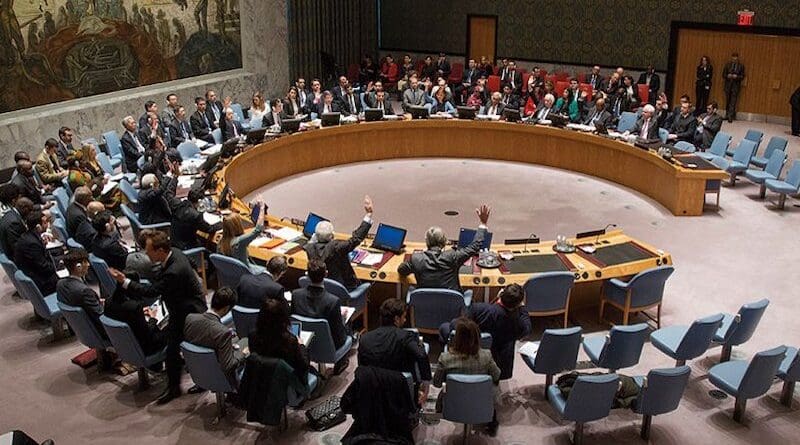Art Of Diplomacy In 21st Century: Navigating Challenges And Fostering Cooperation – OpEd
The significance of diplomacy holds immense weight in the contemporary and interconnected world we inhabit. Seemingly insignificant occurrences possess the potent ability to yield widespread repercussions and global instigate or regional crises.
Diplomats assume a crucial role in molding intergovernmental affairs as they serve as representatives of their nations engage in negotiations aimed at treaties forging and agreements and tackle pressing global concerns such as climate change. While these challenges may manifest differently across nations they ultimately constitute issues of a universal nature impacting humanity at large.
Accordingly, it is pertinent to unpack the obstacles diplomats encounter in shaping the diplomatic landscape of the present century necessitating their adept navigation through intricacy while leveraging mediation as means a to foster tranquility. Diplomacy is an indispensable component of international relations serving as a catalyst for cooperation and diplomatic efforts between nations on critical global issues such as pandemics change climate and terrorism. Diplomats assume the responsibility of facilitating diplomatic dialogue with foreign leaders and negotiating agreements that benefit all involved parties including addressing change climate.
Moreover, diplomats play a pivotal role times in crises such as pandemics by establishing contact and representing their nation’s interests working towards the preservation of human rights development and the resolution of war crimes with other countries to maintain favorable international relations.
In the contemporary era, diplomats have assumed a paramount role in resolving global conflicts peacefully promoting collaboration in addressing global problems through diplomacy. Achieving successful outcomes in this realm necessitates a delicate balance of power establishment the of reasonable expectations and the adept utilization of diplomatic tools.
The primary objective of diplomats is to foster international cooperation diplomacy and convert troubled states’ aspirations into productive conversations. Their efforts revolve around the pursuit of fair agreements provision of aid and safeguarding the environment ultimately fostering trust and forging positive relationships among diverse societies. This encompasses to efforts prevent and resolve disputes amicably; however, diplomats also possess agency in global organizations to promote national interests and offer a political solution to issues such as drug trafficking illiteracy terrorism, and environmental degradation.
Diplomats play a pivotal role in the universal advancing recognition of fundamental international principles including rights human and sustainable development. They firmly believe that differences on such ideological matters can be bridged through transparent discussions that incorporate public participation. Consequently recognize the significance of engaging through people various mediums, such as television the internet, and direct public involvement. By effectively communicating and taking necessary action they remain optimistic that contentious aspects can be identified and properly addressed.
This approach to diplomacy often accompanied by economic assistance has individual empowered states and smaller countries to exert greater influence on the global stage. Diplomats comprehend that in contemporary diplomacy embracing constructive criticism is preferable to being perceived as an adversary. They aim to exert influence not to intimidate. Diplomatic efforts can take various forms ranging from behind-the-scenes negotiations high high-level summits. A skillful diplomat acknowledges the potential pitfalls of communication and comprehends how power dynamics impact peace.
Effective communication paramount is particularly when with dealing issues about criminal activities. Diplomats collaborate with close law enforcement sharing agencies’ information and coordinating investigations to dismantle criminal networks and fortify security global. Given the imperative to promote peace worldwide diplomats must maintain a global presence and demonstrate competence in the of art diplomacy.
Diplomacy is an arduous profession that carries numerous responsibilities. These responsibilities include assisting with aid programs promoting conflict resolution and addressing pressing global challenges. The essence of diplomacy lies in establishing connections between conflicting parties through diplomatic avenues striving for just and equitable resolutions. Diplomatic engagement demands a conciliatory mindset characterized by empathy cooperation success and across diverse contexts and for varying purposes. Diplomats must possess the skills necessary to effectively manage situations. The ultimate goal of diplomacy in the 21st century is to actively engage in conflicts and work relentlessly towards the attainment of peace thereby cultivating a global harmonious order.
In conclusion, government officials experts, and diplomats continue to grapple with significant global issues including climate change terrorism pandemics, and transnational crime which may give rise to a multitude of challenges. Thus it is imperative for them to actively pursue their interests while also fostering a collaborative approach towards shared objectives through engaging in various dialogues. Conversation advocacy efforts and the formulation of appropriate or bilateral multilateral strategies play crucial in the role of diplomats as they strive to public ensure safety global peace, and sustainability progress.
The opinions expressed in this article are the author’s own.
References
- Diplomacy: Theory and Practice” by Joseph Nye Jr. (2008). Princeton University Press.
- “Climate Change and International Relations: A Century of Transnational Relations” edited by Paul Harris (2015). Routledge.
- “Pandemic Diplomacy: How Nations Responded to COVID-19” by John Mearsheimer (2021). Oxford University Press.
- “Terrorism and Diplomacy: Negotiating with Terrorists” by Daniel Byman (2019). Harvard University Press.
- “Globalization and Its Discontents” by Joseph E. Stiglitz (2003). W.W. Norton & Company.
- “The Art of Diplomacy: Defining Foreign Policy” by Nicholas Burns (2019). Yale University Press.

